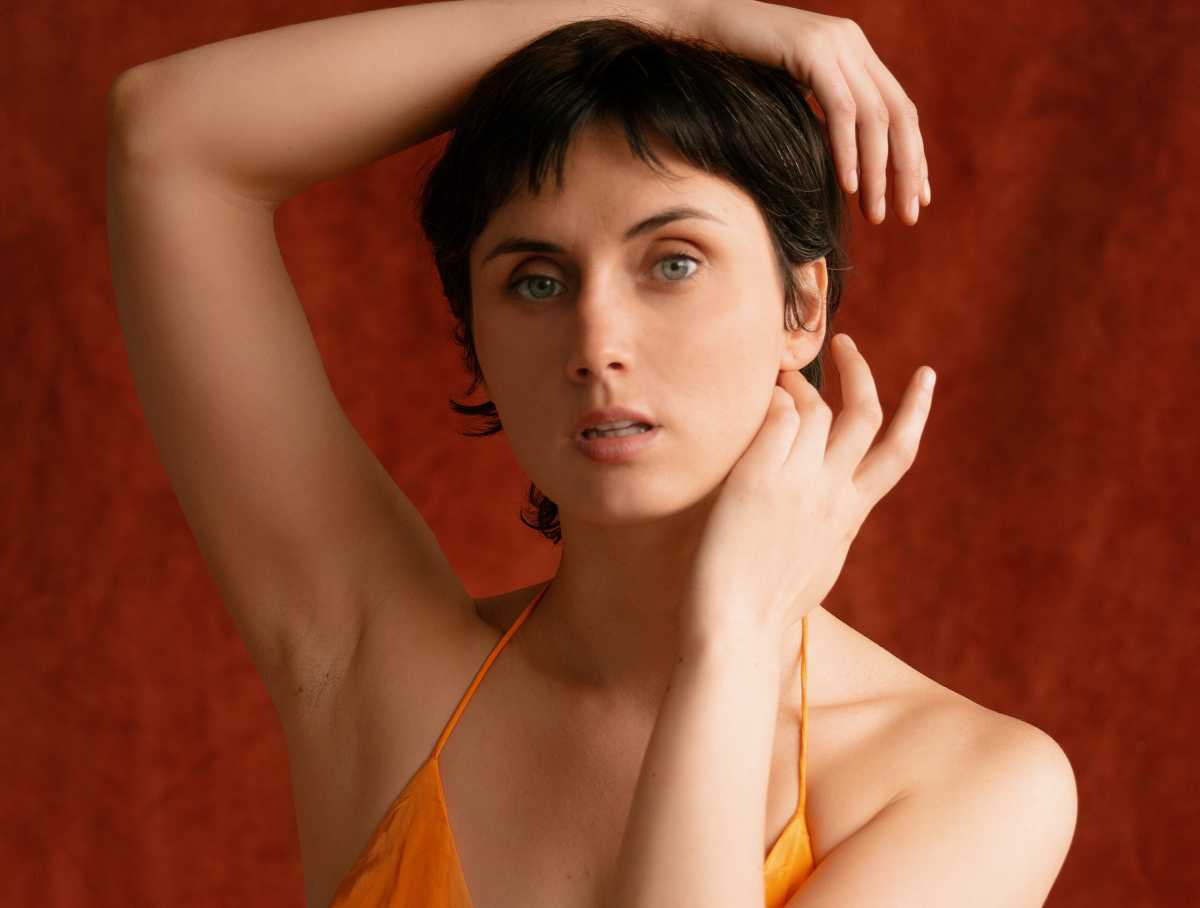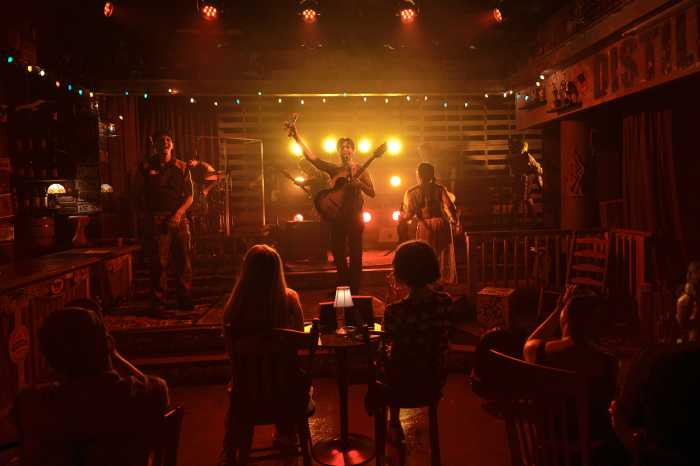It’s only mid-February, but there’s no doubt that the album “Blue Raspberry” (Anti-) by out singer/songwriter Katy Kirby is already one of the best of 2024. Texas-native Kirby, now based in Nashville, is a distinctive young songwriter, and she performs her songs with a confidence that belies her age.
In the “Thank Yous” for the “Blue Raspberry” liner notes, Kirby mentions “the archives of Arthur Russell at the New York Public Library for the Performing Arts.” A longtime fan of the late gay Russell’s songwriting, she found out through a friend of a friend that the New York Public Library had received his archives recently and had started opening them to the public.
“My guitar player and producer Logan (Chung) did the bureaucratic research to figure out how to get in there,” Kirby told Gay City News. “Those librarians were so helpful. They want people to see it. It was so exciting. We got to hear a bunch of demo tapes and stuff from sessions. If I’m just basing it off his scribbled notes, he was just as wacky of a guy as one might think. It made me feel very seen.”
Kirby includes Angel Olsen among her other musical influences and inspirations.
“I like the way that Angel Olsen records always sound pretty sweeping, even when they’re quiet,” Kirby explained. “We’d been listening to a lot of Sam Cooke before we started to make the record. And songs that were very obviously love songs from that era.”
Some of the songs on “Blue Raspberry,” including “Cubic Zirconia,” “Part of the Century,” and “Table,” were co-written by Kirby and members of her band who also perform them with her on the album. So, were these compositions the kind that were created in the studio or were they written beforehand? Kirby says it’s a combination.
“My band is such a part of how the songs end up sounding that it seemed only reasonable to credit them with writing some of them,” Kirby said. “I believe I wrote all the lyrics myself. For some of those that were written later, I realized that sometimes I don’t feel like I’m done with a song until I bring it to Logan and Alberto (Sewald) and Austin (Hoke) and Lane (Rodges). It depends, but they are such an enormous part of the process of what those songs turn into, that it’s certainly not just me.”
Kirby’s Anti- Records label-mate Christian Lee Hutson, who has worked with Phoebe Bridgers, is also credited as a co-writer on “Part of the Century.” Kirby and Hutson first started writing “Part of the Century” over FaceTime a couple years ago when they “threw a bunch of things at the wall,” Kirby recalled — and they were not sure if their efforts would translate into anything worthwhile.
“Then I whittled it down a little bit, and as it turned out, there was kind of a little bit of a story in that song,” Kirby said.
There are some pleasing recurring themes in the songs, including cubic zirconia (in the song of the same name, as well as “Alexandria” and “Salt Crystal”), salt crystal (in the song of the same name and the title track), and “Fences” (in the song of the same name, as well as in “Wait Listen.”). In terms of the wordplay and repetition, Kirby states, “The way that those songs were coming to me at the time, they all felt connected, or they were part of sort of the same thought. Some of those images were interesting enough to me that I wanted to use them twice. Once I did, I liked how it put the songs in dialogue with each other. I would like that if another songwriter did that.”
She points out Ezra Koenig of Vampire Weekend as an example. He “has a couple of songs where he says, ‘I don’t want to live like this, but I don’t want to die.’ I always thought was super fun to think about. I liked it as a listener, so I thought I would try to get away with it myself.”
Like fellow queer singer/songwriter Becca Mancari, Kirby comes from an evangelical Christian background, which often complicates the family coming out process for others who are in the same situation.
“I really didn’t have a coming out experience per se with them,” Kirby shared. “I was 26 when I started dating a girl for the first time. It was someone that they had known for a while. She was someone I went to college with. I didn’t really feel like I made an announcement. We just started seeing each other. Then I told my mom, I told my dad, and I told my siblings. They were all like, ‘Okay!’ I don’t know if I ever said it out loud, like ‘I’m gay.’ I just said, ‘I’m dating.’”
Kirby realizes how fortunate she is. She said her parents were “like standard evangelicals at some point” and “they didn’t love gay stuff,” but they were never cruel or intense. They’ve mellowed out as they’ve aged, and there was no drama when it came to her sexuality, Kirby said.
Anti- Records, which is releasing “Blue Raspberry,” has a long history of queer acts on its roster, including The Drums, Bob Mould, and Ezra Furman. It’s another example of Kirby’s good fortune.
“Honestly, being on Anti- Records was at the top of my internal bucket list of goals,” Kirby said. “It felt really weird after signing with them because I didn’t think I would achieve that goal as early in my career. I had no other goal to work towards. I felt adrift because I really have loved that label so much and respected how they’ve been. I was completely unmoored by signing with them.”
From now through August, Kirby and her band are in the midst of a concert tour, including a date at New York’s Bowery Ballroom on March 8. Kirby reports that she’s really been enjoying playing some of the songs on the record that she was “scared to perform live, like ‘Redemption Arc’ or ‘Hand to Hand,’ or some of the slower, weirder ones.” All in all, it’s been a good experience for her.
“A couple of people have been singing along…which is shocking, but nice,” she said.


































